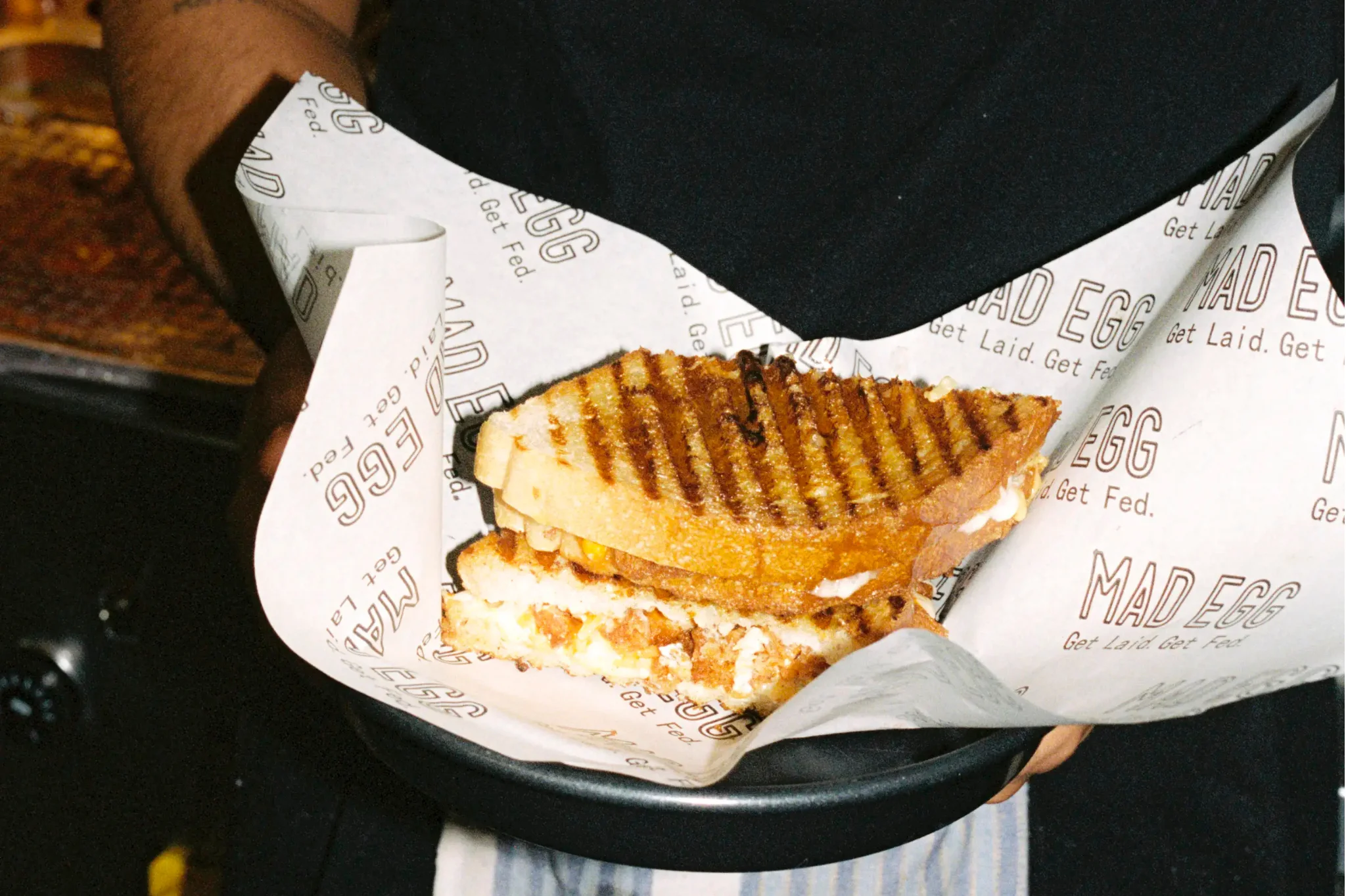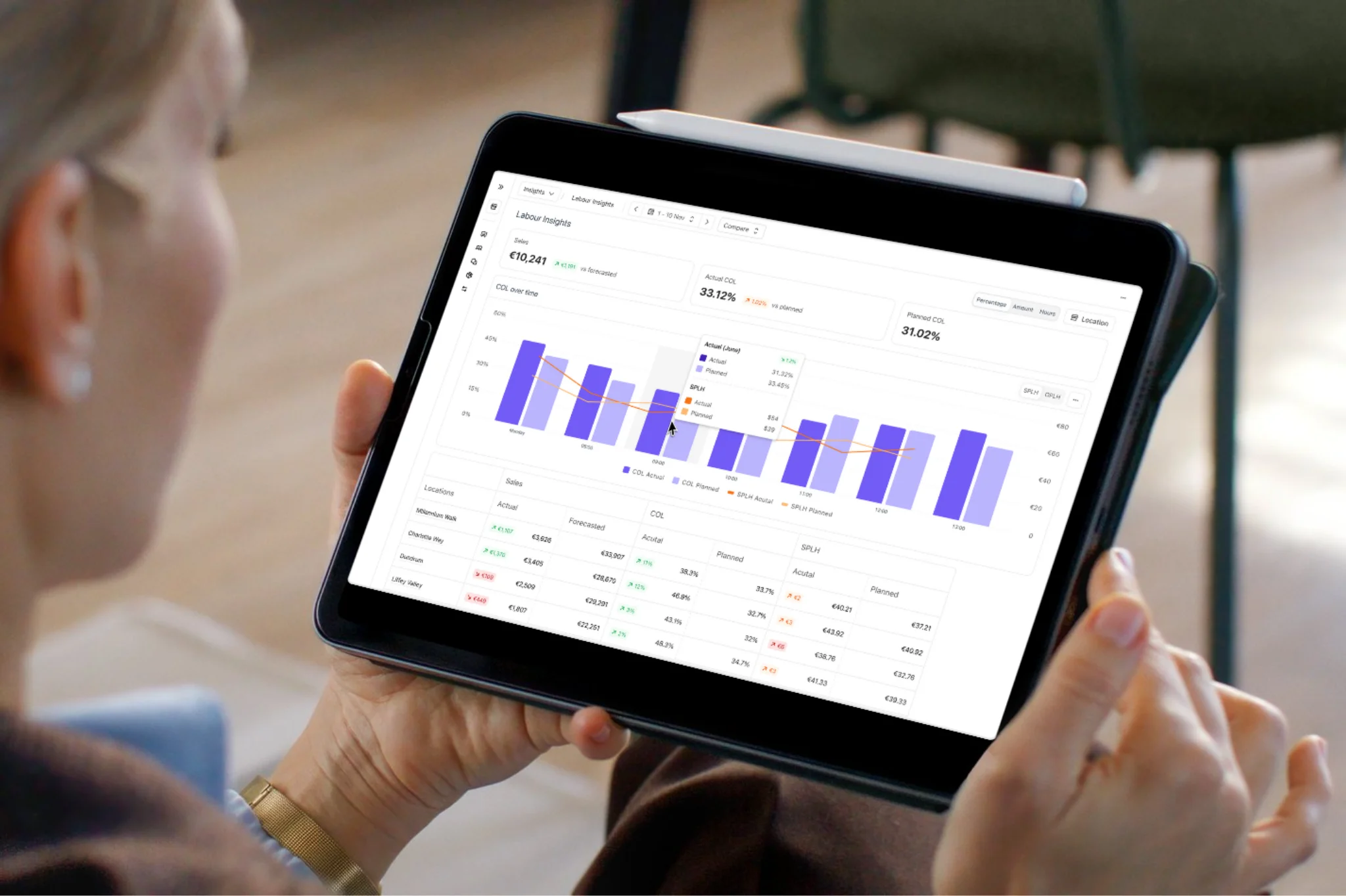MCA Insights: The immense potential of generative AI
As big brands latch onto the potential of artificial intelligence, Simon Brooks looks at how the likes of Chipotle, Domino’s, Roasting Plant and more are driving efficiencies, controlling costs and creating consistency in their businesses.
As part of this article, Simon spoke to Conor Sheridan, CEO here at Nory about building Nory and how the industry’s opinion of AI has evolved in recent times.
The immense potential of generative AI
Author: Simon Brooks
As Conor Sheridan was overseeing the expansion of his fast-casual fried chicken restaurant Mad Egg in Ireland, he encountered a problem familiar to many food businesses as they scale up – how to provide a consistent service to all customers in every branch.
Sheridan, whose previous experience had been in finance and technology turned to Artificial Intelligence (AI) as a means of achieving this consistency, as well as controlling costs and improving overall efficiency. “We realised that we needed to upgrade from using Excel spreadsheets to get more detailed, accurate analysis”, he explains to MCA.

Three years ago, he founded Nory, which helps restaurants, QSR outlets and coffee shops among others to predict demand so that managers can allocate staff more effectively while improving inventory and supply chain management to improve margins. “What matters for a restaurant is consistency with guest experience, operational efficiency and profitability”, he says. “That’s the problem we’re trying to solve so we asked: ‘What are the workflows and jobs in the restaurant that we could apply AI to in order to overcome them?’.”
Nory’s technology “learns” from sales and other data and then takes into account external factors such as seasonal activities and events to identify patterns that it can use as a base on which to make predictions. “It can show you what happens to footfall if you increase prices and I can tell you that you’re going to be quiet at this time on this day but busier at another time and so you know how to deploy your staff accordingly.”
Roasting Plant Coffee saw an 18% reduction in labour costs within two months of using Nory technology rather than the traditional Excel spreadsheets.
Many of the big US QSR chains are already implementing AI with a view to rolling it out in the UK. Domino’s uses it to automatically check pizza quality by viewing each item. AI is also helping to speed up the ordering process. “We make pizzas before people order them,” CEO Russell Weiner told investors during the company’s earnings call in May. “You start your order online and at some point, our algorithm figures out you’re ready to order and we start making them.”
Meanwhile burrito brand Chipotle is exploring the potential of generative AI to better understand individual preferences to enhance personalisation in its Chipotle Rewards loyalty program.
“We see immense potential in leveraging generative AI to unlock insights from evolving data inputs to help us analyse vast amounts of data and uncover hidden patterns, trends, and correlations, for example, forecasting, prep and labour,” a spokesperson tells MCA.
.webp)
With raw material prices continuing to damage profitability, AI has the ability to reduce waste. “Inventory management systems can predict stock needs by analysing data like customer flow, menu trends, and even seasonal factors,” said Professor Andy Pardoe, of Pardo AI Consulting, and an honorary professor at Warwick University.
“This means you’re only ordering what’s needed. In bars and restaurants, AI can monitor ingredient usage, making sure that nothing is being wasted during preparation or service. It can also track sales patterns to forecast demand more accurately, which cuts down on excess stock and ultimately supports sustainability efforts.”
AI has the potential to offer customers options for food and drink based on their previous purchases as it learns about their individual preferences. As with other sectors it can replace repetitive, manual tasks, freeing up staff to do things that only humans can do – a particularly important consideration in service industries. This is something that Zizzi, in particular is finding.

“Many of our solutions and partners leverage AI to improve our operations and the experience we offer our customers,” Jim Hingston, digital & technology director, at Zizzi, ASK and Coco di Mama operators Azzurri Group, tells MCA. The company is currently trialling AI and copilot solutions internally and reviewing the results. Many are, though, already positive.
“We’re seeing increased productivity with copilots and various tooling,” he adds. “Likewise, the solutions that leverage AI are offering much faster processing and automating manual tasks. Many of our partners are investing in AI solutions. We look to partner and trial these where it’s appropriate and could deliver business value.”
Hingston sees numerous opportunities for tangible benefits across marketing, data and insight, technology and finance. “We’re spinning up innovation projects and research to better leverage our data and AI. I would also like to upskill our teams outside tech on AI and how to start using it day to day to improve their productivity.”
Larger restaurant, bar and coffee shop groups will be better placed to develop their own AI technologies, either working in house or investing in more bespoke solutions commissioned from developers. Smaller groups will probably be better off buying off-the-shelf products. One thing is almost certain, though – as the technology is developed prices will come down. The other positive forward trajectory is that the more that AI learns, both about specific companies and about the industry as a whole, the more effective it will become.
AI can help businesses to plan ahead thanks to the use of predictive analytics. “Instead of looking back at previous data and making decisions based on this, AI can help operators take this data and predict trends and eventualities that could take place in the future,” Glenn Tait, product director at Zonal says.
“AI can analyse data such as bookings, the weather forecast and local events in milliseconds and more accurately than the human eye,” he tells MCA. “This enables operators to get a detailed picture of how busy a restaurant may be that day, or that week, and then use this data to plan better.”

Increasingly, according to Conor Sheridan, AI will interrogate data and turn it into natural language texts for business owners and managers as well as running everything from payroll to procurement, end-to-end. “The aim is to help you to get your head above water so that you can work on the business rather than just in it,” he says.
Knowledge about and interest in AI was minimal among business leaders when he launched Nory, but now attitudes “have gone through a 180-degree turn around”, according to Sheridan. However, he advises business leaders to take a pragmatic, practical approach to AI, ensuring that they know which problems they need it to solve rather than just regarding it as “a solution looking for a problem.”
Balancing rapid adoption with quality control is another challenge. McDonald’s is withdrawing AI-powered voice recognition ordering technology from around 100 of its drive-through restaurants in the US, the BBC recently reported. In one case bacon, it is claimed, was added to a request for ice cream, while another customer had hundreds of dollars’ worth of chicken nuggets added to their order.
“In the industry, there’s definitely a mix of emotions around AI – excitement, curiosity, and some nerves,” Daniya Stewart, managing director of Drydrinker, a supplier of no and low-alcohol products for both the on- and off-trade, explains. “To really benefit from AI, you’ve got to know the right questions to ask and understand how to use the answers it gives you, rather than relying on it blindly.”
“The key is recognising that AI’s just a tool. It’s about using it to complement our skills, not replace them. So while people are excited, they’re also learning how to integrate AI into their work without letting it overshadow their own expertise – that’s where the real power lies.”
Read the original article here: The immense potential of generative AI

.webp)
.webp)

